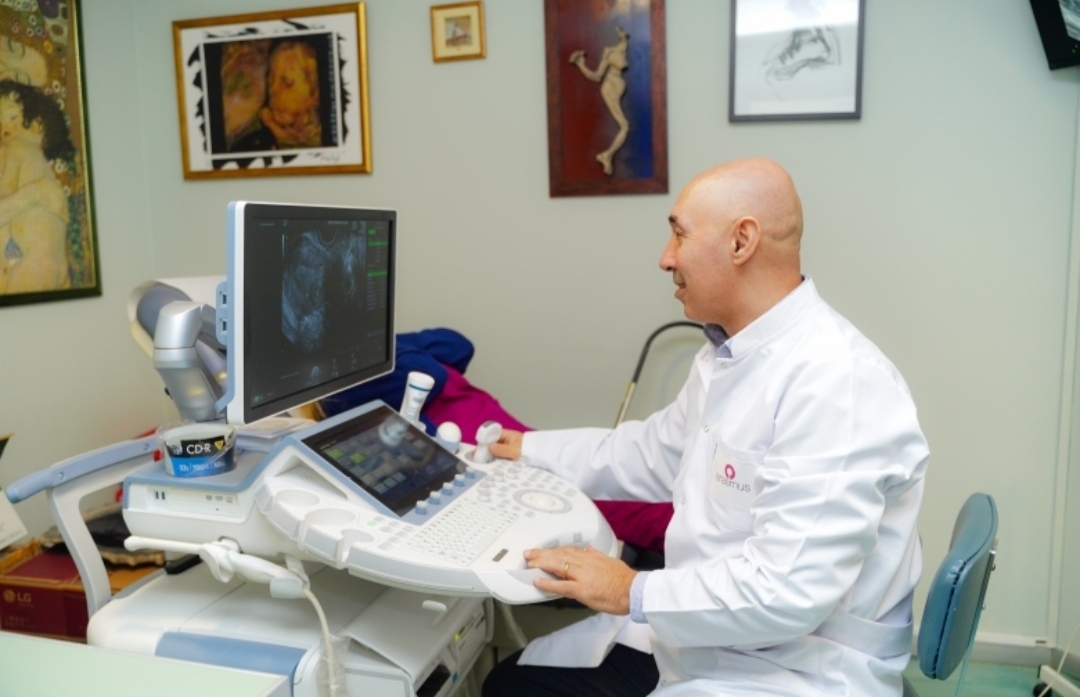Every year more than 30,000 women undergo fertility treatment in the UK, leading to more than 10,000 births. In Vitro Fertilisation (IVF) is one of the world’s most effective treatments for infertility.
However, even today, having a child through the test tube baby process can raise a lot of questions. In this article, we will help you understand the difference between a test tube baby and a normal baby.
Main Differences between a Test Tube and Conceived Baby
 In reality, both the test tube and the naturally conceived baby grow out to be the same. Keep reading to learn the difference between a test tube baby and a normal baby:
In reality, both the test tube and the naturally conceived baby grow out to be the same. Keep reading to learn the difference between a test tube baby and a normal baby:
Difference 1 – How Are They Conceived?
The biggest difference between a normally conceived child and a test tube baby is that while a normal baby is conceived naturally through sexual intercourse, test tube babies are born with the help of medical technology.
When a woman has sexual intercourse with a man, her eggs are naturally fertilised by the man’s sperm, forming a baby. However, during an IVF treatment, fertility doctors will mix your egg and your partner’s sperm in a laboratory dish.
They will then keep it under observation in a controlled environment, and once the embryo is ready, the medical professionals will implant it in your uterus.
Difference 2 – How Can the Time Period of Pregnancy Vary?
When it comes to natural conception, most women are unaware of the pregnancy until they start experiencing symptoms such as vomiting and nausea. This usually happens after two weeks of conceiving.
On the other hand, a test tube baby treatment can take up to ten weeks. During these weeks, you will have to undergo multiple tests, an egg retrial, fertilisation, and embryo transfer process. Simply put, it takes longer to conceive a child through IVF than to get pregnant naturally.
Difference 3 – An IVF Baby Isn’t a Surprise
Did you know that every 1 in 6 pregnancies in the UK is unplanned? While the pregnancy news of a normally conceived baby might be a happy surprise for some couples, others can lead to abortions, family disputes, and the upbringing of traumatised children.
Therefore, although unprotected sex can result in a surprise pregnancy, an IVF baby isn’t unexpected as you might have already gone through a comprehensive but painless fertility process.
Test Tube Baby Procedure
 If you are looking for infertility solutions, IVF has a promising success rate. Conceiving a baby through IVF (In Vitro Fertilisation) takes some time. In addition to blood tests, fertility specialists conduct a baseline ultrasound to check the condition of the ovaries and other reproductive organs.
If you are looking for infertility solutions, IVF has a promising success rate. Conceiving a baby through IVF (In Vitro Fertilisation) takes some time. In addition to blood tests, fertility specialists conduct a baseline ultrasound to check the condition of the ovaries and other reproductive organs.
Once you are medically clear, the test tube baby process officially begins. Here is everything you need to know about the IVF procedure:
Step 01: Stimulation of Ovaries
Compared to your normal menstrual cycle, when on an IVF treatment, the fertility specialists will conduct testing of your uterus and give you medications as a result of which the follicles in your ovaries will produce more than one egg.
During the medication period, the doctor will closely observe the progress of your follicles to implant the embryo at the time when you are most fertile.
Step 02: Egg Retrieval
Also known as the “Egg Pick-up” stage, fertility doctors will carefully retrieve your eggs once they mature. In order to do so, the medical professional will give you anesthesia and will guide a needle into your ovaries to collect the 8 to 15 eggs.
Step 03: Sperm Preparation
If you are using fresh sperm, the doctor will request the male partner to provide a semen sample on the day of the egg retrieval.
However, in case you have opted to use donor sperm, the fertility specialist will take out the frozen sperm on the day of the egg retrieval, and they will wash it to get rid of any dirt.
Step 04: Fertilisation
Now that both the sperm and eggs are ready, it is time to bring them together.
For this step, the IVF specialist will place the sperm and the eggs in a petri dish and will allow them to meet in a controlled environment.
Step 05: Embryo Development
As soon as the egg fertilises and develops into an embryo, it will be placed in a special incubator for 4 to 6 days.
During this time, the fertility specialist team will observe the embryo’s development.
Step 06: Embryo Transfer
Once the embryo is big and healthy enough to be implanted, the fertility doctors will ask the female partner to lay in the lithotomy position, ensuring that both legs are separated.
The doctor will then use a catheter to open the cervix and will carefully plan the embryo into the uterine wall.
Normally the embryo transfer takes 10 to 15 minutes.
However, the doctor will ask the patient to rest for at least 30 minutes in the same position. This will help the embryo in finding a firm ground to implant itself.
After the IVF treatment is completed, the fertility doctor will give you a two-week waiting period. They will then call you to conduct a blood test to confirm the presence of HCG, confirming that you are pregnant.
Do Test-Tube Babies Grow Up with Problems?
While most test tube babies are as healthy as a naturally conceived child, some are at a higher risk for low birth weight, which can be associated with type 2 diabetes, hypertension, blood pressure, anxiety, asthma, and obesity in the future.
A geneticist at Temple University School of Medicine, Carmen Sapienza, conducted a study on two different groups of children: test tube babies and those conceived naturally.
The result showed that 5 to 10 percent of the DNA methylation pattern genes are different between non-IVF and IVF children.
However, there is no way to tell if these differences are because of the fertility technology which is used to produce IVF babies or due to underlying genetic or infertility problems that the parents had. The report also predicted that these varying gene-expression could translate into health differences.
So, even though IVF children don’t always grow up with health problems, they are unique on some level.
Other related articles
Do IVF Babies Look Like Their Parents?

Many people have the misconception that since an IVF baby is made in a laboratory, it isn’t genetically linked to the parents. However, that isn’t the case.
Although the IVF fertilisation process takes place in a well-equipped and sterilised lab, the egg and sperm are ultimately a biological extension of the parents, and so the baby test tube will always be genetically linked to the mother and father.
However, there are a few conditions in which the baby might not completely resemble the parents:
- Condition 01: If you are using the donor’s sperm, then there’s a high chance that the baby won’t genetically relate to the father.
- Condition 02: If you are using donor eggs for the IVF treatment, then the child will not genetically relate to the mother.
- Condition 03: If you use the donor sperm and donor eggs, the child will neither genetically relate to the mother nor the father.
With this said, it is important for the parents going through fertility treatment to understand that conceiving the child naturally doesn’t guarantee that it will resemble you, and using donor eggs or donor sperm doesn’t also mean that the baby won’t look like you.
For example, if by any chance the donor is of the same ethnicity, there’s a high chance that the little angel might resemble both parents.
While we understand that every parent desires to raise a child that looks just like them, genes don’t make a family. So, even if your child doesn’t have the same eye colour, hair, or features, it doesn’t make them any less of your precious baby.
Do IVF Babies Have Weaker Immune Systems?
No, IVF babies are as healthy as normally conceived children. This means they don’t have any long-term or short-term risks to their health. Primarily because the IVF process is harmless, the only difference is how the child is conceived, using fertility drugs and medical procedures.
While the above-mentioned is the case for the majority, research has also shown that there is a 3 to 5 percent chance of an IVF child suffering from an abnormality as they are low in weight. Whereas the probability is one percent less in a naturally conceived child.
Furthermore, before performing an embryo transfer, the doctor will always conduct a PGD (Preimplantation Genetic Diagnosis) to check if the egg has any genetic abnormalities.
This helps in minimising the chances of the IVF baby developing any medical or physical abnormalities.
Despite being born with medical help, an IVF baby is the same as a normal one. Both babies grow inside the mother’s womb, which means they get all the necessary nutrients required to have a strong immune system.
Is the Test Tube Baby Procedure Painful?
 Every woman has a different body mechanism. While some might find the test tube baby IVF process painless, the IVF procedure might be slightly discomforting for others.
Every woman has a different body mechanism. While some might find the test tube baby IVF process painless, the IVF procedure might be slightly discomforting for others.
Here is what you should expect during each stage of the IVF treatment:
Hormonal Injections: The doctors will use an injectable pen or a needle with small bores to inject a dose of hormones. This might cause mild discomfort and a weird sensation, but it will soon fade away.
Egg Retrieval Process: This process is usually painless as you are under anaesthesia. However, you can feel a bit uneasy after the numbness goes away.
Embryo Transfer: The fertility doctor will use a catheter and a needle to implant the embryo inside your womb. This is an entirely painless process and takes about 5 to 10 minutes.
Are Test Tube Babies Smarter than Normal Babies?
Several researchers have proven that test tube babies conceived with ICSI have a better IQ than naturally conceived babies. A European study was conducted where the development and intelligence of 151 eight-year-old IVF-born children were observed and measured.
The results showed that while the average IQ of a naturally conceived child was 107, the IQ of an IVF child was 112 on average.
On the other hand, a Danish study proved that the academic performance of IVF children is the same as normally conceived babies. Therefore, while the answer to this question is uncertain, you should remember every child is special and intelligent in their own way.
Summary – Difference between Test Tube Baby and Normal Baby
Did you know that around 1 in 7 couples face difficulty conceiving? This is where infertility treatments come in. Bringing back hope into the lives of couples who want to become parents, IVF is a miracle medical process that gives everyone a chance to have a healthy baby.
Except for how the child is conceived, both test tube and normal babies are the same and require the same care during pregnancy and after birth. However, if you still have concerns about the difference between a test tube baby and a normal baby, reach out to one of our specialist IVF doctors for a free consultation.
Other related articles






